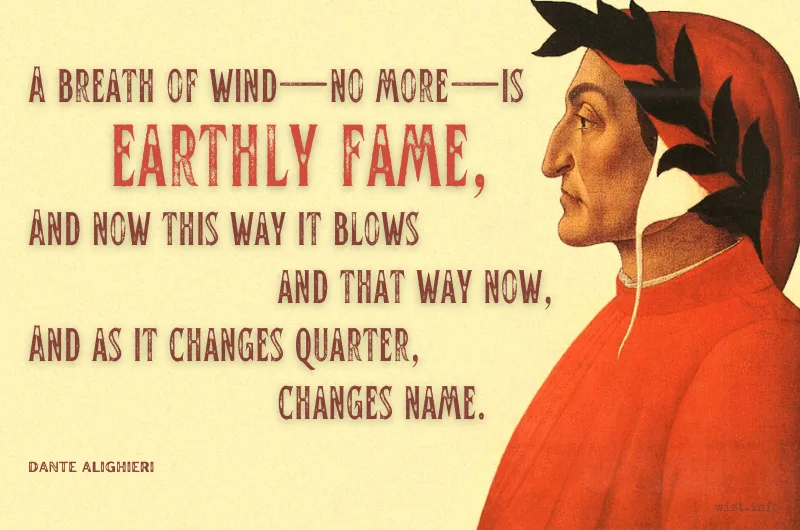We refuse praise from a desire to be praised twice.
[Le refus des louanges est un désir d’être loué deux fois.]
François VI, duc de La Rochefoucauld (1613-1680) French epigrammatist, memoirist, noble
Réflexions ou sentences et maximes morales [Reflections; or Sentences and Moral Maxims], ¶149 (1665-1678) [tr. Kronenberger (1959)]
(Source)
Present since the 1st edition. Brund/Friswell note a variant 1665 version which they translate: "The modesty which pretends to refuse praise is but in truth a desire to be praised more highly."
See also ¶327, and Chesterfield (1750).
(Source (French)). Alternate translations:That Modesty which stands so much upon the refusal of [praises], is indeed but a desire of having such as are more delicate.
[tr. Davies (1669), ¶151]He that refuses Praises the first time it is offered, does it, because he would hear it a second.
[tr. Stanhope (1694), ¶150]A refusal of praise is a desire to be praised twice.
[pub. Donaldson (1783), ¶368; ed. Lepoittevin-Lacroix (1797), ¶143]Resistance to praise is a desire to be praised twice.
[ed. Carvill (1835), ¶325]A refusal of praise; is a desire to be praised twice.
[ed. Gowens (1851), ¶152]The refusal of praise is only the wish to be praised twice.
[tr. Bund/Friswell (1871), ¶149]We decline commendation that we may be twice commended.
[tr. Heard (1917), ¶149]To disclaim admiration is to desire it in double measure.
[tr. Stevens (1939), ¶149]The refusal to accept praise is the desire to be praised twice over.
[tr. FitzGibbon (1957), ¶149]To refuse to accept praise is to want to be praised twice over.
[tr. Tancock (1959), ¶149]The refusal of praise is a desire to be praised twice over.
[tr. Siniscalchi (c. 1994)]The refusal of praise is a desire to be praised twice.
[tr. Whichello (2016) ¶149]
Quotations about:
applause
Note not all quotations have been tagged, so Search may find additional quotes on this topic.
That integrity that lives only on opinion would starve without it; and that theatrical kind of virtue, which requires publicity for its stage, and an applauding world for an audience, could not be depended on in the secrecy of solitude, or the retirement of a desert.
Charles Caleb "C. C." Colton (1780-1832) English cleric, writer, aphorist
Lacon: Or, Many Things in Few Words, Vol. 1, § 236 (1820)
(Source)
There are two things which ought to teach us to think but meanly of human glory: the very best have had their calumniators, the very worst their panegyrists.
Charles Caleb "C. C." Colton (1780-1832) English cleric, writer, aphorist
Lacon: Or, Many Things in Few Words, Vol. 1, § 523 (1820)
(Source)
Esteem is worth more than celebrity, respect is worth more than renown, and honor is worth more than fame.
[L’estime vaut mieux que la célébrité, la considération vaut mieux que la renommée, et l’honneur vaut mieux que la gloire.]
Nicolas Chamfort (1741-1794) French writer, epigrammist (b. Nicolas-Sébastien Roch)
Products of Perfected Civilization [Produits de la Civilisation Perfectionée], Part 1 “Maxims and Thoughts [Maximes et Pensées],” ch. 2, ¶ 131 (1795) [tr. Merwin (1969)]
(Source)
(Source (French)). Alternate translations:Esteem is better than celebrity, respect is better than renown, and honour than glory.
[tr. Mathers (1926)]Esteem is worth more than being celebrated, respect is better than renown, and honour is better than fame.
[tr. Pearson (1973)]Esteem is worth more than celebrity, consideration is worth more than fame, and honor is worth more than glory.
[tr. Siniscalchi (1994)]
Men whose only concern is other people’s opinion of them are like actors who put on a poor performance to win the applause of people of poor taste; some of them would be capable of good acting in front of a good audience. A decent man plays his part to the best of his ability, regardless of the taste of the gallery.
[Ceux qui rapportent tout à l’opinion ressemblent à ces comédiens qui jouent mal pour être applaudis, quand le goût du Public est mauvais. Quelques-uns auraient le moyen de bien jouer si le goût du Public était bon. L’honnête homme joue son rôle le mieux qu’il peut, sans songer à la galerie.]
Nicolas Chamfort (1741-1794) French writer, epigrammist (b. Nicolas-Sébastien Roch)
Products of Perfected Civilization [Produits de la Civilisation Perfectionée], Part 1 “Maxims and Thoughts [Maximes et Pensées],” ch. 2, ¶ 141 (1795) [tr. Parmée (2003), ¶ 117]
(Source)
(Source (French)). Alternate translations:Those who refer everything to the opinion of others are like comedians who act badly, when the public taste is bad, in order to be applauded. Some of them could have acted well if the taste of the audience had been good. An upright man plays his part as excellently as he can, with no thought for the gallery.
[tr. Mathers (1926)]Those who defer in everything to the general opinion are like actors who act badly in the hope of applause, when the public’s taste is bad. Some of them would be able to act well, if the public’s taste were good. An honest man plays his part as well as he can, without a thought for the gallery.
[tr. Merwin (1969)]Those who refer everything to public opinion are like those actors who play badly in order to be applauded, when public taste is bad. some would have an opportunity to act well, if public taste were good. The respectable man plays his part as best he can, without thinking of the gallery.
[tr. Pearson (1973)]
Endeavour rather to get the Approbation of a few good Men, than the Huzza of the Mob.
Thomas Fuller (1654-1734) English physician, preacher, aphorist, writer
Introductio ad Prudentiam, Vol. 1, # 512 (1725)
(Source)
In order to be well received, an actor need not be on stage all the way through the play, as long as he performs satisfactorily in the scenes in which his character appears. In the same way, a wise man need not feel that he must loiter to the very end of the very last act. To demonstrate virtue and excellent character, a short life is long enough.
[Neque enim histrioni, ut placeat, peragenda fabula est, modo in quocunque fuerit actu probetur; neque sapientibus usque ad “Plaudite” veniendum est. Breve enim tempus aetatis satis longum est ad bene honesteque vivendum.]Marcus Tullius Cicero (106-43 BC) Roman orator, statesman, philosopher
De Senectute [Cato Maior; On Old Age], ch. 19 / sec. 70 (19.70) (44 BC) [tr. Cobbold (2012)]
(Source)
Many older translators refer to the plaudite, which was was the last word of many Latin plays, particularly those of Terence and Plautus. It was basically a formal cue for the audience to applaud. Waiting for the plaudite is the same as waiting for the end of the play, the fall of the curtain.
(Source (Latin)). Alternate translations:I wolde that ye knowe that as the poete makith not onely by versys of a fable in his comedye callid an enterlude to the intente bycause that it please to hym that pleyeth it in the game. But the poete makith onely his comedye and enterlude to the ende bycause that in every pagent he be preysed and commended of every man aftir his playe. And the wise man also ought not to desire to lyve tylle that he saye "That is to witt I will no lenger of my life." For a short and a litle tyme of age is long for to lyve wele and honestly.
[tr. Worcester/Worcester/Scrope (1481)]For he that is a stage-player needeth not of necessity to be an actor in the interlude or comedy until the last end thereof (to delight the beholders), but in what act of the same soever he playeth or chanceth to be, he must so expressly handle and play his part, that he may win praise and commendation; neither should a wise man live till the plaudite be stricken up. For a short space and time of life is long enough to live well and honestly, and in whatsoever age we be in, it is sufficient to have lived therein godly and virtuously.
[tr. Newton (1569)]For a good actor is not applauded in the midst of a Scene, so a wise mans praise comes not till the end. The time of our age is short indeed; but long enough to live well and honestly.
[tr. Austin (1648), ch. 21]When a good Actor doth his part present,
In ev'ry Act he our attention draws,
That at the last he may find just applause,
So (though but short) yet we must learn the art
Of virtue, on this Stage to act our part;
True wisdome must our actions so direct,
Not only the last Plaudite to expect.
[tr. Denham (1669)]A short Space of time is long enough, if constantly employed in the Pursuit of Honour and Virtue.
[tr. Hemming (1716)]And as the Player may be applauded in every Scene, tho' to give true Satisfaction he must finish his Play; so with the wise Man, he lives approv'd by all till his last Plaudit. For the time of Man's life is short, yet it is long enough to live well.
[tr. J. D. (1744)]No Man expects of any one Actor on the Theatre, that he should perform all the Parts of the Piece himself: One Role only is committed to him, and whatever that be, if he acts it well, he is applauded. In the same Manner, it is not the Part of a wise Man, to desire to be busy in these Scenes to the last Plaudit. A short Term may be long enough to live it well and honourably.
[tr. Logan (1744)]It is in life as on the stage, where it is not necessary in order to be approved, that the actor's part should continue to the conclusion of the drama; it is sufficient, in whatever scene he shall make his final exit, that he supports the character assigned him with deserved applause. The truth is, a small portion of time is abundantly adequate to the purposes of honour and virtue.
[tr. Melmoth (1773)]For neither must a play be gone all through by a player, that he may please; it is only needful that he be approved in whatsoever act he shall have been; nor should a wise man live quite to Plaudite. For a short space of time is long enough to live virtuously and honourably.
[Cornish Bros. ed. (1847)]For neither need the drama be performed entire by the actor, in order to give satisfaction, provided he be approved in whatever act he may be: nor need the wise man live till the plaudite. For the short period of life is long enough for living well and honourably.
[tr. Edmonds (1874)]In order to give pleasure to the audience, the actor need not finish the play; he may win approval in whatever act he takes part in; nor need the wise man remain on the stage till the closing plaudit. A brief time is long enough to live well and honorably.
[tr. Peabody (1884)]An actor, in order to earn approval, is not bound to perform the play from beginning to end; let him only satisfy the audience in whatever act he appears. Nor need a wise man go on to the concluding "plaudite." For a short term of life is long enough for living well and honourably.
[tr. Shuckburgh (1895)]Our span of life is brief, but it is long enough for us to live well and honestly.
[ed. Harbottle (1906)]Why ev'n the actor to secure applause
Need not play to the end: if but he do
His best, he will be cheered: if wise, he'll stop
Before he reach the final "Plaudite."
A little time's enough, in which to live
A good and honest life.
[tr. Allison (1916)]The actor, for instance, to please his audience need not appear in every act to the very end; it is enough if he is approved in the parts in which he plays; and so it is not necessary for the wise man to stay on this mortal stage to the last fall of the curtain. For even if the allotted space of life be short, it is long enough in which to live honourably and well.
[tr. Falconer (1923)]An actor, in order to find favor, does not have to take part all the way through a play; he need only prove himself in any act in which he may appear; similarly the wise and good man does not have to keep going until the curtain is rung down. A brief span of years is quite long enough for living a good and honorable life.
[tr. Copley (1967)]An actor does not have to appear in the last part of the movie: he can earn good reviews from what he does in any part of it. And neither must life be drawn out until some venerable time for the final curtain. A short time of life is enough to live well and honorably.
[tr. Gerberding (2014)]During a drama an actor has no need
To be cheered but in the parts he plays
while on the stage of mortal life, indeed,
A man of discernment never stays
Until the last applause. A short life is always
Long enough to be lived honestly and well.
[tr. Bozzi (2015)]An actor does not need to remain on stage throughout the play. It is enough that he appears in the appropriate acts. Likewise, a wise man need not stay on the stage of this world until the audience applauds at the end. The time allotted to our lives may be short, but it is long enough to live honestly and decently.
[tr. Freeman (2016)]
COMMENDATION, n. The tribute that we pay to achievements that resemble, but do not equal, our own.
Ambrose Bierce (1842-1914?) American writer and journalist
“Commendation,” The Cynic’s Word Book (1906)
(Source)
Included in The Devil's Dictionary (1911). Originally published in the "Devil's Dictionary" column in the San Francisco Wasp (1881-08-05).
A breath of wind — no more — is earthly fame,
And now this way it blows and that way now,
And as it changes quarter, changes name.
[Non è il mondan romore altro ch’un fiato
di vento, ch’or vien quinci e or vien quindi,
e muta nome perché muta lato.]Dante Alighieri (1265-1321) Italian poet
The Divine Comedy [Divina Commedia], Book 2 “Purgatorio,” Canto 11, l. 100ff (11.100-102) [Oderisi of Gubbio] (1314) [tr. Sayers (1955)]
(Source)
(Source (Italian)). Alternate translations:The breath of Fame is but a fickle gale,
Whose veering blasts from every point prevail,
And every change bestows a different name.
[tr. Boyd (1802), st. 20]The noise
Of worldly fame is but a blast of wind,
That blows from divers points, and shifts its name
Shifting the point it blows from.
[tr. Cary (1814)]The mundane rumour is a fleeting breath
Of wind, that veers and varies in account,
And changes name because it changes point.
[tr. Bannerman (1850)]Naught is this mundane rumour but a breath
Of wind, that comes now this way and now that,
And changes name, because it changes side.
[tr. Longfellow (1867)]The rumour of the world is naught else than a breath of wind, which now comes hence and now comes thence, and changes name because it changes quarter.
[tr. Butler (1885)]Mundane renown is but a breath forlorn
Of wind that cometh now from here, now there,
Named various from the quarter whence 'tis borne.
[tr. Minchin (1885)]Worldly renown is naught but a breath of wind, which now comes this way and now comes that, and changes name because it changes quarter.
[tr. Norton (1892)]Earthly fame is naught but a breath of wind, which now cometh hence and now thence, and changes name because it changes direction.
[tr. Okey (1901)]The world's noise is but a breath of wind which comes now this way and now that and changes name because it changes quarter.
[tr. Sinclair (1939)]Naught but a wind's breath is the world's acclaim,
Which blows now hence, now thence, as it may hap,
And when it changes quarter changes name.
[tr. Binyon (1943)]A breath of wind is all there is to fame
here upon earth: it blows this way and that
and when it changes quarter it changes name.
[tr. Ciardi (1961)]Earthly fame is naught but a breath of wind,
which now comes hence and now comes thence,
changing its name because it changes quarter.
[tr. Singleton (1973)]Your earthly fame is but a gust of wind
that blows about, shifting this way and that,
and as it changes quarter, changes name.
[tr. Musa (1981)]Earthly fame is nothing but a breath of wind,
Which first blows one way and then blows another,
And brings a fresh name from each fresh direction.
[tr. Sisson (1981)]Worldly renown is nothing other than
a breath of wind that blows now here, now there,
and changes name when it has changed its course.
[tr. Mandelbaum (1982)]The clamor of the world is nothing but a breath of wind that comes now from here and now from there, and changes names because it changes directions.
[tr. Durling (2003)]Worldly Fame is nothing but a breath of wind, that now blows here, and now there, and changes name as it changes direction.
[tr. Kline (2002)]The roar of earthly fame is just a breath
of wind, blowing from here and then from there,
that changes name in changing origin.
[tr. Kirkpatrick (2007)]Worldly fame is nothing but a gust of wind,
first blowing from one quarter, then another,
changing name with every new direction.
[tr. Hollander/Hollander (2007)]Shouts of worldly fame are nothing more
Than a passing breath of wind, blowing here,
Then there, changing its name from place to place.
[tr. Raffel (2010)]
Great minds had rather deserve contemporaneous applause, without obtaining it, than obtain, without deserving it; if it follow them, it is well, but they will not deviate to follow it. With inferior minds the reverse is observable; so that they can command the flattery of knaves while living, they care not for the execrations of honest men, when dead.
Charles Caleb "C. C." Colton (1780-1832) English cleric, writer, aphorist
Lacon: Or, Many Things in Few Words, Vol. 1, § 6 (1820)
(Source)
Others lash the unknown seas with oars,
Rush at the sword, pay court in royal halls.
One destroys a city and its homes
To drink from jewelled cups and sleep on scarlet;
One hoards his wealth and lies on buried gold.
One gapes dumbfounded at the speaker’s stand;
At the theater, still another, open-mouthed,
Reels before crescendos of applause
From the tiers where mob and dignitaries sit.
Others are keen to drench themselves in blood,
Their brothers’ blood, and, exiled, change their homes
And winsome hearths, to range abroad for room
To live in, underneath a foreign sun.[Sollicitant alii remis freta caeca ruuntque
in ferrum, penetrant aulas et limina regum;
hic petit excidiis urbem miserosque Penatis,
ut gemma bibat et Sarrano dormiat ostro;
condit opes alius defossoque incubat auro;
hic stupet attonitus rostris; hunc plausus hiantem
per cuneos — geminatus enim plebisque patrumque —
corripuit; gaudent perfusi sanguine fratrum,
exsilioque domos et dulcia limina mutant
atque alio patriam quaerunt sub sole iacentem.]Virgil (70-19 BC) Roman poet [b. Publius Vergilius Maro; also Vergil]
Georgics [Georgica], Book 2, l. 504ff (2.504-513) (29 BC) [tr. Bovie (1956)]
(Source)
Virgil contrasting violent, ambitious, vain, and rootless life of city folk (evoking the Roman civil wars), in contrast to the bucolic peace and sense of home enjoyed by farmers.
(Source (Latin)). Alternate translations:Some vex the Sea, and some to war resorts,
Attend on Kings, and waite in Princes Courts.
This would his Countrey, and his God betray
To drink in Jems, and on proud scarlet lye.
This hides his wealth, and broods on hidden gold,
This loves to plead, and that to be extold
Through all the seats of Commons, and the sires.
To bathe in's brothers blood this man desires.
Some banish'd, must their native seats exchange,
And Countries, under other Climates range.
[tr. Ogilby (1649)]Some to the Seas, and some to Camps resort,
And some with Impudence invade the Court.
In foreign Countries others seek Renown,
With Wars and Taxes others waste their own.
And Houses burn, and household Gods deface,
To drink in Bowls which glitt'ring Gems enchase:
To loll on Couches, rich with Cytron Steds,
And lay their guilty Limbs in Tyrian Beds.
This Wretch in Earth intombs his Golden Ore,
Hov'ring and brooding on his bury'd Store.
Some Patriot Fools to pop'lar Praise aspire,
By Publick Speeches, which worse Fools admire.
While from both Benches, with redoubl'd Sounds,
Th' Applause of Lords and Commoners abounds.
Some through Ambition, or thro' Thirst of Gold;
Have slain their Brothers, or their Country sold:
And leaving their sweet Homes, in Exile run
To Lands that lye beneath another Sun.
[tr. Dryden (1709), l. 720ff]Some rush to battle, vex with oars the deep,
Or in the courts of Kings insidious creep;
For cups of gem, and quilts of Tyrian, die,
Others remorseless loose each public tie:
On hoarded treasures these ecstatic gaze,
Those eye the Rostra, stupid with amaze:
This for the theatre's applauding roar
Sighs: with the blood of brothers sprinkled o'er
From their dear homes to exile others run,
And seek new seats beneath a distant sun.
[tr. Nevile (1767), l. 565ff]Some vex with restless oar wild seas unknown.
Some rush on death, or cringe around the throne;
Stern warriors here beneath their footsteps tread
The realm that rear'd them, and the hearth that fed,
To quaff from gems, and lull to transient rest
The wound that bleeds beneath the Tyrian vest.
These brood with sleepless gaze o'er buried gold,
The rostrum these with raptur'd trance behold,
Or wonder when repeated plaudits raise
'Mid peopled theatres the shout of praise;
These with grim joy, by civil discord led,
And stain'd in battles where a brother bled.
From their sweet household hearth in exile roam,
And seek beneath new suns a foreign home.
[tr. Sotheby (1800)]Some vex the dangerous seas with oars, some rush into arms, some work their way into courts, and the palaces of kings. One destines a city and wretched families to destruction, that he may drink in gems and sleep on Tyrian purple. Another hoards up wealth, and broods over buried gold. One, astonished at the rostrum, grows giddy; another peals of applause along the rows, (for it is redoubled both by the people and the fathers,) have captivated, and set agape; some rejoice when stained with their brother's blood; and exchange their homes and sweet thresholds for exile, and seek a country lying under another sun.
[tr. Davidson (1854)]While others vex dark Hellespont with oars,
Leap on the sword, or dash through royal stores,
Storm towns and homesteads, in their vile desire
To quaff from pearl, and sleep on tints of Tyre;
While others hoard and brood on buried dross,
And some are moonstruck at the pleader's gloss;
While this man gapes along the pit, to hear
The mob and senators renew their cheer;
And others, reeking in fraternal gore,
With songs of triumph quit their native shore,
Abjure sweet home for banishment, and run
In quest of country 'neath another sun --
[tr. Blackmore (1871), l. 602ff]Others are startling the darkness of the deep with oars, rushing on the sword's pint, winning their way into the courts and ante-chambers of kings; another is dooming a city to ruin and its homes to misery, that he may drink from jewelled cups and sleep on Tyrian purple; another hoards his wealth, and broods o'er buried gold; this man is dazzled and amazed by the eloquence of the rostra; that man the applause of commoners and senators, as it rolls redoubled through the benches, transports agape with wonder; they steep their hands in brothers' blood and joy, they change their homes and the thresholds of affection for the land of exile, and seek a fatherland that lies beneath another sun.
[tr. Wilkins (1873)]Others vex
The darksome gulfs of Ocean with their oars,
Or rush on steel: they press within the courts
And doors of princes; one with havoc falls
Upon a city and its hapless hearths,
From gems to drink, on Tyrian rugs to lie;
This hoards his wealth and broods o'er buried gold;
One at the rostra stares in blank amaze;
One gaping sits transported by the cheers,
The answering cheers of plebs and senate rolled
Along the benches: bathed in brothers' blood
Men revel, and, all delights of hearth and home
For exile changing, a new country seek
Beneath an alien sun.
[tr. Rhoades (1881)]These dare the ocean, and invite the storm,
This rage, and this the courtier’s wiles deform;
All faith, all right the traitor’s acts defy,
From gems to drink, on Tyrian purple lie;
One broods in misery o’er his hoarded gold.
And one in chains the people’s plaudits hold.
There stains of blood pollute a brother’s hand,
And he in terror flies his father’s land.
[tr. King (1882), l. 514ff]Some vex the dangerous seas with oars, or rush into arms, or work their way into courts and the palaces of kings: one marks out a city and its wretched homes for destruction, that he may drink from jewelled cups and sleep on Tyrian purple. Another hoards up wealth, and lies sleepless on his buried gold. One, in bewildered amazement, gazes at the Rostra; another, in open-mouthed delight, the plaudits of the commons and the nobles, redoubled along benches, have arrested: some take pleasure in being drenched with a brother’s blood; and exchange their homes and dear thresholds for exile, and seek a country lying under another sun.
[tr. Bryce (1897)]Others vex blind sea-ways with their oars, or rush upon the sword, pierce the courts and chambers of kings; one aims destruction at the city and her wretched homes, that he may drink from gems and sleep on Tyrian scarlet; another heaps up wealth and broods over buried gold; one hangs rapt in amaze before the Rostra; one the applause of populace and senate re-echoing again over the theatre carries open-mouthed away: joyfully they steep themselves in blood of their brethren, and exchange for exile the dear thresholds of their homes, and seek a country spread under an alien sun.
[tr. Mackail (1899)]Others may tempt with oars the printless sea, may fling
Their lives to the sword, may press through portals and halls of a king.
This traitor hath ruined his country, hath blasted her homes, thereby
To drink from a jewelled chalice, on Orient purple to lie;
That fool hoards up his wealth, and broods o'er his buried gold;
That simple-one gazes rapt on the rostra: the loud cheers rolled
Down the theatre-seats, as Fathers and people acclaiming stood,
Have entranced yon man; men drench them with joy in their brethren's blood;
Into exile from home and its sweet, sweet threshold some have gone
Seeking a country that lieth beneath an alien sun.
[tr. Way (1912), l. 503ff]Let strangers to such peace
Trouble with oars the boundless seas or fly
To wars, and plunder palaces of kings;
Make desolate whole cities, casting down
Their harmless gods and altars, that one's wine
May from carved rubies gush, and slumbering head
On Tyrian pillow lie. A man here hoards
His riches, dreaming of his buried gold;
Another on the rostrum's flattered pride
Stares awe-struck. Him th' applause of multitudes.
People and senators, when echoed shouts
Ring through the house approving, quite enslaves.
With civil slaughter and fraternal blood
One day such reek exultant, on the next
Lose evermore the long-loved hearth and home.
[tr. Williams (1915)]Others brave with oars seas unknown, dash upon the sword, or press their way into courts and the chambers of kings. One wreaks ruin on a city and its wretched homes, and all to drink from a jewelled cup and sleep on Tyrian purple; another hoards wealth and gloats over buried gold; one stares in admiration at the rostra; another, open-mouthed, is carried away by the applause of high and low which rolls again and again along the benches. They steep themselves in their brothers’ blood and glory in it; they barter their sweet homes and hearths for exile and seek a country that lies beneath an alien sun.
[tr. Fairclough (Loeb) (1916)]Other men dare the sea with their oars blindly, or dash
On the sword, or insinuate themselves into royal courts:
One ruins a whole town and the tenements of the poor
In his lust for jewelled cups, for scarlet linen to sleep on,
One piles up great wealth, gloats over his cache of gold;
One gawps at the public speakers; one is worked up to hysteria
By the plaudits of senate and people resounding across the benches:
These shed their brothers’ blood
Merrily, they barter for exile their homes beloved
And leave for countries lying under an alien sun.
[tr. Day-Lewis (1940)]Others churn blind straits with their oars, and rush to the sword, force their way across the thresholds and into the courts of kings; [...] They rejoice, soaked in their brothers’ blood, exchange their own sweet thresholds for exile and seek a fatherland under another sun.
[tr. Miles (1980)]Some vex with oars uncharted waters, some
Rush on cold steel, some seek to worm their way
Into the courts of kings. One is prepared
To plunge a city's homes in misery
All for a jewelled cup and a crimson bedspread;
Another broods on a buried hoard of gold.
This one is awestruck by the platform's thunder;
That one, enraptured, gapes ad the waves of applause
from high and low rolling across the theater.
Men revel steeped in brothers' blood, exchange
The hearth they love for banishment, and seek
A home in lands benath an alien sun.
[tr. Wilkinson (1982)]Others trouble unknown seas with oars, rush on
their swords, enter the gates and courts of kings.
This man destroys a city and its wretched houses,
to drink from a jewelled cup, and sleep on Tyrian purple:
that one heaps up wealth, and broods about buried gold:
one’s stupefied, astonished by the Rostra: another, gapes,
entranced by repeated applause, from people and princes,
along the benches: men delight in steeping themselves
in their brothers’ blood, changing sweet home and hearth for exile,
and seeking a country that lies under an alien sun.
[tr. Kline (2001)]Others slap their oars on dark, unknown seas, fall on their swords,
or thrust themselves into royal courts and palaces.
One man aims to destroy a city and its humble homes -- just
to drink from a jeweled goblet and sleep on Tyrian purple;
another stores up treasures and broods on his buried gold.
Wide-eyed, one gawks at the forum's speakers; another,
mouth agape, is swept away when lower class and upper both
applaud a statesman. Dripping with their brothers' gore,
they exult, exchanging familiar homes and hearths for exile,
they seek a fatherland that lies beneath a foreign sun.
[tr. Lembke (2004)]Others fret with oars uncharted seas, or rush
upon the sword, or infiltrate the courts and vestibules of kings.
One visits devastation on a city and its wretched hearths
that he may slurp from a jewelled cup and snore on Tyrian purple.
Another hoards treasure and broods over buried gold.
One wonders thunderstruck at the podium, one gapes
transported by the applause of senators and commonfolk
resounding through the galleries. Drenched in their brothers' blood
they exult, and trade exile for their homes and sweet porches,
and seek a homeland under an alien sun.
[tr. Johnson (2009)]There are those who with their oars disturb the waters
Of dangerous unknown seas, and those who rush
Against the sword, and those who insinuate
Their way into the chamber of a king:
There's one who brings down ruin on a city
And all its wretched households, in his desire
To drink from an ornate cup and go to sleep
On Tyrian purple coverlets at night;
There's the man who heaps up gold, and hides it away,
There's he who stares up stupefied at the Rostrum;
There's the open-mouthed, undone astonishment
Of the one who hears the waves and waves of the wild
Applause of the close packed crowd in the theater;
There are those who bathe in their brothers' blood, rejoicing;
And those who give up house and home for exile,
Seeking a land an alien sun shines on.
[tr. Ferry (2015)]
The way you win as a creative person is to learn to love the work and not the applause.
Bob Dylan (b. 1941) American singer, songwriter
(Misattributed)
Attributed to Dylan, but it actually appears to be from an article by Brian Herzog, "Don't Write for Applause" (28 May 2015), which touched on Dylan.
A man should fear when he enjoys only what good he does publicly. Is it not the publicity, rather than the charity, that he loves?
Henry Ward Beecher (1813-1887) American clergyman and orator
In Henry Ward Beecher and Edna Dean Proctor, Life Thoughts: Gathered From the Extemporaneous Discourses of Henry Ward Beecher (1858)
See Matthew.
When friends and acquaintances are telling you you are a genius, before you accept their opinion, take a moment to remember what you always thought of their opinions in the past.
Carl Icahn (b. 1936) American businessman and investor
In “The Best Financial Advice I Ever Got (or Gave),” Wall Street Journal (6 Jan 2014)
(Source)
You’re the top!
You’re the Colosseum.
You’re the top!
You’re the Louvre Museum.
You’re a melody from a symphony by Strauss,
You’re a Bendel bonnet, a Shakespeare sonnet,
You’re Mickey Mouse.You’re the Nile,
You’re the Tow’r of Pisa,
You’re the smile
On the Mona Lisa.
I’m a worthless check, a total wreck, a flop,
But if, baby, I’m the bottom
You’re the top!
I know, indeed, of nothing more subtly satisfying and cheering than a knowledge of the real good will and appreciation of others. Such happiness does not come with money, nor does it flow from a fine physical state. It cannot be brought. But it is the keenest joy, after all, and the toiler’s truest and best reward.
William Dean Howells (1837-1920) American author, literary critic, and playwright
Interview with Orison Swett Marden, Success Magazine
(Source)
Quoted in Marden, How They Succeeded: Life Stories of Successful Men Told by Themselves, ch. 11 (1901).
For I know not why we should delay our tokens of respect to those who deserve them, until the heart that our sympathy could have gladdened has ceased to beat. As men cannot read the epitaphs inscribed upon the marble that covers them, so the tombs that we erect to virtue often only prove our repentance that we neglected it when with us.
Edward George Bulwer-Lytton (1803-1873) English novelist and politician
Letter to F. T. Mappin (25 Sep 1855)
(Source)
Quoted in The Illustrated London News, Vol. 27 (6 Oct 1855)
Neither human applause nor human censure is to be taken as the test of truth. He who should satisfy himself either with being popular, or with being unpopular, would equally be taking man’s judgment for his standard. But either the one or the other should set us upon careful self-examination.
Richard Whately (1787-1863) English logician, theologian, archbishop
Sermon, Christ Church, Dublin (22 Oct 1837)
(Source)
He that applauds him who does not deserve praise, is endeavoring to deceive the public; he that hisses in malice or sport, is an oppressor and a robber.
Samuel Johnson (1709-1784) English writer, lexicographer, critic
The Idler, #25 (7 Oct 1758)
(Source)
Almost every man wastes part of his life in attempts to display qualities which he does not possess, and to gain applause which he cannot keep.
Samuel Johnson (1709-1784) English writer, lexicographer, critic
The Rambler, #189 (7 Jan 1752)
(Source)
It is harder to avoid censure than to gain applause; for this may be done by one great or wise action in an age. But to escape censure a man must pass his whole life without saying or doing one ill or foolish thing.
David Hume (1711-1776) Scottish philosopher, economist, historian, empiricist
(Attributed)
(Source)
Quoted in The Home Circle (Jan 1855)
When the million applaud you, seriously ask yourself what harm you have done; when they censure you, what good!
Charles Caleb "C. C." Colton (1780-1832) English cleric, writer, aphorist
Lacon: Or, Many Things in Few Words, Vol. 1, § 183 (1820)
(Source)
There are high spots in all of our lives and most of them have come about through encouragement from someone else. I don’t care how great, how famous, or successful a man or woman may be, each hungers for applause.
George Matthew Adams (1878-1962) American newspaper columnist, publisher
Syndicated Column (1932)
(Source)
Every society honors its live conformists, and its dead troublemakers.
Mignon McLaughlin (1913-1983) American journalist and author
The Neurotic’s Notebook, ch. 7 (1963)
(Source)
Be careful that you don’t practice your religion in front of people to draw their attention. If you do, you will have no reward from your Father who is in heaven.
Whenever you give to the poor, don’t blow your trumpet as the hypocrites do in the synagogues and in the streets so that they may get praise from people. I assure you, that’s the only reward they’ll get. But when you give to the poor, don’t let your left hand know what your right hand is doing so that you may give to the poor in secret. Your Father who sees what you do in secret will reward you.
When you pray, don’t be like hypocrites. They love to pray standing in the synagogues and on the street corners so that people will see them. I assure you, that’s the only reward they’ll get. But when you pray, go to your room, shut the door, and pray to your Father who is present in that secret place. Your Father who sees what you do in secret will reward you.[Προσέχετε [δὲ] τὴν δικαιοσύνην ὑμῶν μὴ ποιεῖν ἔμπροσθεν τῶν ἀνθρώπων πρὸς τὸ θεαθῆναι αὐτοῖς· εἰ δὲ μή γε, μισθὸν οὐκ ἔχετε παρὰ τῷ πατρὶ ὑμῶν τῷ ἐν τοῖς οὐρανοῖς.
Ὅταν οὖν ποιῇς ἐλεημοσύνην, μὴ σαλπίσῃς ἔμπροσθέν σου, ὥσπερ οἱ ὑποκριταὶ ποιοῦσιν ἐν ταῖς συναγωγαῖς καὶ ἐν ταῖς ῥύμαις, ὅπως δοξασθῶσιν ὑπὸ τῶν ἀνθρώπων· ἀμὴν λέγω ὑμῖν, ἀπέχουσιν τὸν μισθὸν αὐτῶν. σοῦ δὲ ποιοῦντος ἐλεημοσύνην μὴ γνώτω ἡ ἀριστερά σου τί ποιεῖ ἡ δεξιά σου, ὅπως ᾖ σου ἡ ἐλεημοσύνη ἐν τῷ κρυπτῷ· καὶ ὁ πατήρ σου ὁ βλέπων ἐν τῷ κρυπτῷ ἀποδώσει σοι.
Καὶ ὅταν προσεύχησθε, οὐκ ἔσεσθε ὡς οἱ ὑποκριταί, ὅτι φιλοῦσιν ἐν ταῖς συναγωγαῖς καὶ ἐν ταῖς γωνίαις τῶν πλατειῶν ἑστῶτες προσεύχεσθαι, ὅπως φανῶσιν τοῖς ἀνθρώποις· ἀμὴν λέγω ὑμῖν, ἀπέχουσιν τὸν μισθὸν αὐτῶν. σὺ δὲ ὅταν προσεύχῃ, εἴσελθε εἰς τὸ ταμεῖόν σου καὶ κλείσας τὴν θύραν σου πρόσευξαι τῷ πατρί σου τῷ ἐν τῷ κρυπτῷ· καὶ ὁ πατήρ σου ὁ βλέπων ἐν τῷ κρυπτῷ ἀποδώσει σοι.]The Bible (The New Testament) (AD 1st - 2nd C) Christian sacred scripture
Matthew 6: 1-6 (Jesus) [CEB (2011)]
(Source)
No Synoptic parallels.
(Source (Greek)). Alternate translations:Take heed that ye do not your alms before men, to be seen of them: otherwise ye have no reward of your Father which is in heaven. Therefore when thou doest thine alms, do not sound a trumpet before thee, as the hypocrites do in the synagogues and in the streets, that they may have glory of men. Verily I say unto you, They have their reward. But when thou doest alms, let not thy left hand know what thy right hand doeth: that thine alms may be in secret: and thy Father which seeth in secret himself shall reward thee openly.
And when thou prayest, thou shalt not be as the hypocrites are: for they love to pray standing in the synagogues and in the corners of the streets, that they may be seen of men. Verily I say unto you, They have their reward. But thou, when thou prayest, enter into thy closet, and when thou hast shut thy door, pray to thy Father which is in secret; and thy Father which seeth in secret shall reward thee openly.
[KJV (1611)]Be careful not to parade your good deeds before men to attract their notice; by doing this you will lose all reward from your Father in heaven.
So when you give alms, do not have it trumpeted before you; this is what the hypocrites do in the synagogues and in the streets to win men's admiration. I tell you solemnly, they have had their reward. But when you give alms, your left hand must not know what your right is doing; your almsgiving must be secret, and your Father who sees all that is done in secret will reward you.
And when you pray, do not imitate the hypocrites: they love to say their prayers standing up in the synagogues and at the street corners for people to see them; I tell you solemnly, they have had their reward. But when you pray, go to your private room and, when you have shut your door, pray to your Father who is in that secret place, and your Father who sees all that is done in secret will reward you.
[JB (1966)]Make certain you do not perform your religious duties in public so that people will see what you do. If you do these things publicly, you will not have any reward from your Father in heaven.
So when you give something to a needy person, do not make a big show of it, as the hypocrites do in the houses of worship and on the streets. They do it so that people will praise them. I assure you, they have already been paid in full. But when you help a needy person, do it in such a way that even your closest friend will not know about it. Then it will be a private matter. And your Father, who sees what you do in private, will reward you.
When you pray, do not be like the hypocrites! They love to stand up and pray in the houses of worship and on the street corners, so that everyone will see them. I assure you, they have already been paid in full. But when you pray, go to your room, close the door, and pray to your Father, who is unseen. And your Father, who sees what you do in private, will reward you.
[GNT (1976)]Be careful not to parade your uprightness in public to attract attention; otherwise you will lose all reward from your Father in heaven.
When you pray, don’t be like hypocrites. They love to pray standing in the synagogues and on the street corners so that people will see them. I assure you, that’s the only reward they’ll get. But when you pray, go to your room, shut the door, and pray to your Father who is present in that secret place. Your Father who sees what you do in secret will reward you.
So when you give alms, do not have it trumpeted before you; this is what the hypocrites do in the synagogues and in the streets to win human admiration. In truth I tell you, they have had their reward. But when you give alms, your left hand must not know what your right is doing; your almsgiving must be secret, and your Father who sees all that is done in secret will reward you.
[NJB (1985)]Be careful not to practice your righteousness in front of others to be seen by them. If you do, you will have no reward from your Father in heaven.
So when you give to the needy, do not announce it with trumpets, as the hypocrites do in the synagogues and on the streets, to be honored by others. Truly I tell you, they have received their reward in full. But when you give to the needy, do not let your left hand know what your right hand is doing, so that your giving may be in secret. Then your Father, who sees what is done in secret, will reward you.
And when you pray, do not be like the hypocrites, for they love to pray standing in the synagogues and on the street corners to be seen by others. Truly I tell you, they have received their reward in full. But when you pray, go into your room, close the door and pray to your Father, who is unseen. Then your Father, who sees what is done in secret, will reward you.
[NIV (2011 ed.)]Beware of practicing your righteousness before others in order to be seen by them, for then you have no reward from your Father in heaven.
So whenever you give alms, do not sound a trumpet before you, as the hypocrites do in the synagogues and in the streets, so that they may be praised by others. Truly I tell you, they have received their reward. But when you give alms, do not let your left hand know what your right hand is doing, so that your alms may be done in secret, and your Father who sees in secret will reward you.
And whenever you pray, do not be like the hypocrites, for they love to stand and pray in the synagogues and at the street corners, so that they may be seen by others. Truly I tell you, they have received their reward. But whenever you pray, go into your room and shut the door and pray to your Father who is in secret, and your Father who sees in secret will reward you.
[NRSV (2021 ed.)]
A man’s first care should be to avoid the reproaches of his own heart; his next, to escape the censures of the world. If the last interferes with the former, it ought to be entirely neglected; but otherwise there cannot be a greater satisfaction to an honest mind, than to see those approbations which it gives itself, seconded by the applauses of the public.
Joseph Addison (1672-1719) English essayist, poet, statesman
Essay (1711-07-20), The Spectator, No. 122
(Source)
When most the world applauds you, most beware;
‘Tis often less a blessing than a snare.Edward Young (1683-1765) English poet
Poem (1727), “The Universal Passion: Satire 6,” Love of Fame, the Universal Passion (1728)
(Source)
I now perceive one immense omission in my Psychology— the deepest principle of Human Nature is the craving to be appreciated, and I left it out altogether from the book, because I had never had it gratified till now.
William James (1842-1910) American psychologist and philosopher
Letter to his Philosophy 2A class at Radcliffe College (6 Apr 1896)
The class had sent him a potted azalea at Easter. Full letter:Dear Young Ladies, I am deeply touched by your remembrance. It is the first time anyone ever treated me so kindly, so you may well believe that the impression on the heart of the lonely sufferer will be even more durable than the impression on your minds of all the teachings of Philosophy 2A. I now perceive one immense omission in my Psychology—the deepest principle of Human Nature is the craving to be appreciated, and I left it out altogether from the book, because I had never had it gratified until now. I fear that you have let lose a demon in me, and that all my actions will now be for the sake of such rewards.
Applause is the spur of noble minds, the end and aim of weak ones.
Charles Caleb "C. C." Colton (1780-1832) English cleric, writer, aphorist
Lacon: Or, Many Things in Few Words, Vol. 1, § 424 (1820)
(Source)


































